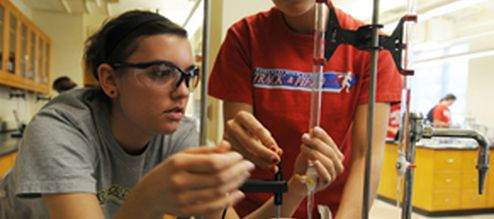Intrinsically Cell-Permeable Miniature Proteins Based on a Minimal Cationic PPII Motif
Document Type
Article
Publication Date
11-6-2007
Publication Source
Journal of the American Chemical Society
Abstract
Cell-penetrating peptides (CPPs) provide promising tools for the cellular delivery of molecular cargos ranging in size from small molecules and peptides to proteins and quantum dots. CPPs are typically cationic and/or amphipathic sequences that are unstructured or α-helical. We expand the repertoire of cell-penetrating motifs by designing encodable CPPs possessing type-II polyproline (PPII) helical structure. These motifs surpass the uptake efficiency of existing CPPs and are not cytotoxic at concentrations 100 times greater than that necessary for delivery. By replacing the PPII helix of a miniature protein, the motif can endow intrinsic cell permeability without increasing molecular size.
Inclusive pages
14578-14579
ISBN/ISSN
0002-7863
Copyright
Copyright © 2007, American Chemical Society
Publisher
American Chemical Society
Volume
129
Peer Reviewed
yes
Issue
47
Keywords
Flow cytometry, Peptides and proteins, Fluorescence, Protein structure, Toxicity
eCommons Citation
Schepartz, Alanna S. and Daniels, Douglas S., "Intrinsically Cell-Permeable Miniature Proteins Based on a Minimal Cationic PPII Motif" (2007). Chemistry Faculty Publications. 92.
https://ecommons.udayton.edu/chm_fac_pub/92
COinS




Comments
Featured in "Revamped Molecular Transporters Shine," Chemical & Engineering News, Vol. 85, No. 43 (2007).